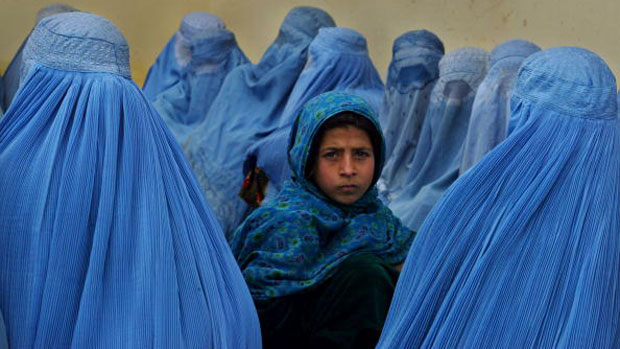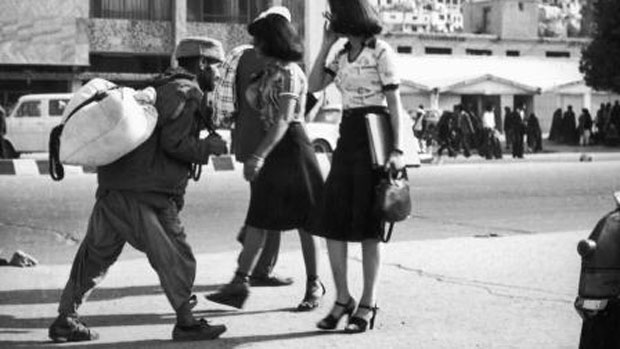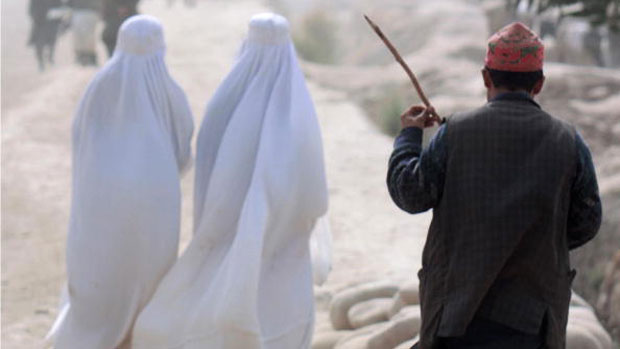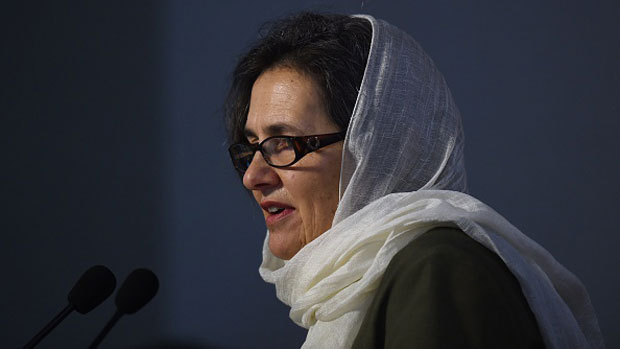Women's rights in Afghanistan: the turbulent fight for equality
In 1923 Afghan law gave women equal rights, but the Soviet invasion – and the Taliban – brought violence and oppression

A free daily email with the biggest news stories of the day – and the best features from TheWeek.com
You are now subscribed
Your newsletter sign-up was successful
Men in Afghanistan are being urged to speak out against gender inequality in a country often ranked one of the most dangerous places in the world for women.
The HeForShe movement, set up by UN Women Goodwill Ambassador Emma Watson, was launched in Afghanistan last week and hopes to encourage men to play a more prominent role in the fight for women's rights.
Although the Taliban's violent rule officially ended more than a decade ago, the group's violent, fundamentalist interpretation of Islamic law continues to influence the lives of women across the country, reports Take Part magazine.
The Week
Escape your echo chamber. Get the facts behind the news, plus analysis from multiple perspectives.

Sign up for The Week's Free Newsletters
From our morning news briefing to a weekly Good News Newsletter, get the best of The Week delivered directly to your inbox.
From our morning news briefing to a weekly Good News Newsletter, get the best of The Week delivered directly to your inbox.
History of women's rights
Afghanistan had a relatively progressive attitude towards women and equality before the Soviet invasion and the subsequent emergence of the Taliban. Afghan women were first given the vote in 1919 – only a year after women in Britain – and the country's first constitution in 1923 guaranteed equal rights for both men and women. The strict dress code enforced in much of modern-day Afghanistan was non-existent for much of the 20th century, and even female members of the royal family appeared in public without veils.

"As a girl, I remember my mother wearing miniskirts and taking us to the cinema [and] my aunt went to university," says Amnesty International researcher Horia Mosadiq, who was a young girl living in Kabul when Russia invaded Afghanistan in 1979.
Under the Taliban
A free daily email with the biggest news stories of the day – and the best features from TheWeek.com
When the Taliban came to power in 1996, they enforced their own strict interpretation of Sharia Law, which disproportionately affected women and girls. All of the freedoms they had enjoyed were stripped away and they were excluded from large parts of everyday life. "Women were essentially invisible in public life, imprisoned in their home," says Amnesty.

They were banned from going to school, having a job, leaving the home without a male relative and getting involved in politics. Women and girls were ordered to cover up with full body veils that covered even their eyes, and were forbidden from wearing makeup and beauty products. The punishments for disobedience were severe and often fatal; floggings, stoning and rape were commonplace.
Post-Taliban
After the US-led invasion in 2001, a number of steps towards gender equality were slowly made in Afghanistan. Women's rights were enshrined in a new constitution in 2003 and in 2009 Afghanistan adopted the Elimination of Violence Against Women (EVAW) law. However, enforcement was weak and a string of physical assaults against high-profile women in 2013 highlighted the dangers activists and women continue to face, says Human Rights Watch. Although girls were allowed to return to school and women were able to participate in politics, many of these freedoms were only afforded to those living in urban areas. In 2011, Afghanistan was named the most dangerous country in the world to be a woman.
New government
When Ashraf Ghani became president last year, his wife Rula quickly carved out her role as a champion for women's rights – but remains reluctant to call herself a feminist. "I have a very mild approach to things," she said. "It doesn't mean that my commitments are not strong."

But there are growing fears about her husband's apparent willingness to engage in peace talks with the Taliban. "We need to find solutions that include them," she told the Washington Post recently. But, she said: "The women of today will not kneel in front of the Taliban," she said. "We can make [women] even stronger and then the question will be moot — totally moot."
Despite Ghani's efforts and the work of a growing movement of activists, violence against women in the country is still rife. Earlier this year, a young Afghan woman called Farkhunda was brutally murdered and her body set on fire and thrown into a river by an angry mob of men who wrongly accused her of burning pages of the Koran. "There is a lot to be done before the equality of political rhetoric becomes an everyday reality for women in Afghanistan," says Amnesty.